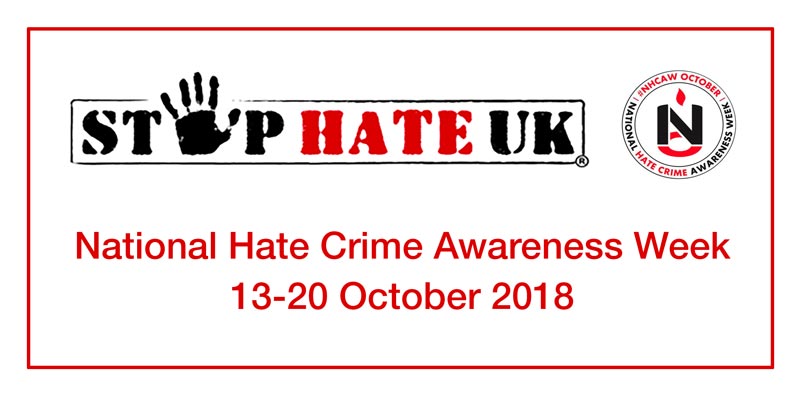As National Hate Crime Awareness Week begins, Yvonne Hawkins explains how the Office for Students is working with universities and colleges, students and others to eradicate hate crime on campus.

The Office for Students is committed to ensuring that all students have a positive experience of higher education. As you’d expect, we have an unerring focus on teaching quality and standards – we regulate higher education providers to make sure they’re equipping their students with the knowledge and skills they need to progress to employment or further study. The ‘all’ part of our commitment is also fundamental. We want higher education to be more representative of wider society: everyone should have an equal opportunity to benefit from higher education if it’s right for them.
Our responsibilities don’t stop there. The environment in which students learn and study is key. In order to succeed, they need to feel safe, healthy, and part of a tolerant, inclusive academic community. Our universities are places in which diversity – of people, opinions, and beliefs – can and does thrive. But we know, because they tell us, that too many students feel unsafe and unsupported during their time in higher education. Too many suffer prejudice, discrimination, harassment and violence on account of their race, sexual orientation, gender identity, faith or disability, and too many are victims of hate crime.
This is why student safeguarding and welfare is a priority for the Office for Students. In partnership with students, universities, and others, we shine a spotlight on key issues, support improvements in policy and practice, and identify ‘what works’ to ensure that interventions and initiatives deliver maximum impact and benefit.
Tackling hate crime in higher education
The national surge in reports of hate crime across society over the past few years has been well-documented; between 2015-16 and 2016-17 the numbers of offences across England and Wales recorded by the police in which one or more hate crime strands were deemed to be a motivating factor increased from 62,518 to 80,393, a rise of 29 per cent.
Incidents of discrimination, harassment and hate crime in universities have attracted significant media attention of late, but this is not a new issue for universities. The National Union of Students has long campaigned to raise awareness of hate crime on campus, and a 2016 report by Universities UK, Changing the Culture, highlighted the need for universities to do more to support students.
An update report published earlier this year found that while progress is being made to address these vitally important issues, there is still a long way to go to ensure that hate crime in all its forms is being addressed:
‘[it] will require further support and time to achieve the same level of prominence and effort to drive change’.
What the Office for Students is doing
Our £4.7 million student safeguarding fund is supporting over 80 universities and colleges across England to develop more effective ways of preventing hate crime and addressing the problems associated with it. Over 100 projects are under way, with a particular focus on sexual harassment, online harassment and hate crime. The projects have been designed with students, who will play an important part in their delivery. They cover a wide range of activity, including training, raising awareness, digital innovation, and new sector-wide approaches to prevention and reporting.
An independent evaluation of the first tranche of projects, published last month, testified to the success of the programme and identified a number of emerging themes with implications for good practice more widely, including:
- the importance of senior leadership commitment
- the benefits of co-creation and engagement with students
- greater and more extensive collaboration between universities and other partners such as local authorities, the police and third sector organisations
- a more strategic approach to safeguarding which is also helping to embed sustainable activity.
This report is the first in a series of evaluations which will provide a robust evidence base for further work.
Hate crime is unacceptable in our society. We have a responsibility to eliminate it, and to challenge and change the attitudes and culture which underlie it. Higher education has a leading part to play in this. Academics in our universities and colleges are actively engaged in analysing its causes and motivations, its effect on victims, and how existing shortcomings in legal, societal and organisational responses can be addressed. The work universities are doing within their own communities to tackle hate crime will also help to increase our understanding of the issues, and how best to respond to them. Both of these things will drive the development of effective policy and practice.

Comments
Report this comment
Are you sure you wish to report this comment?